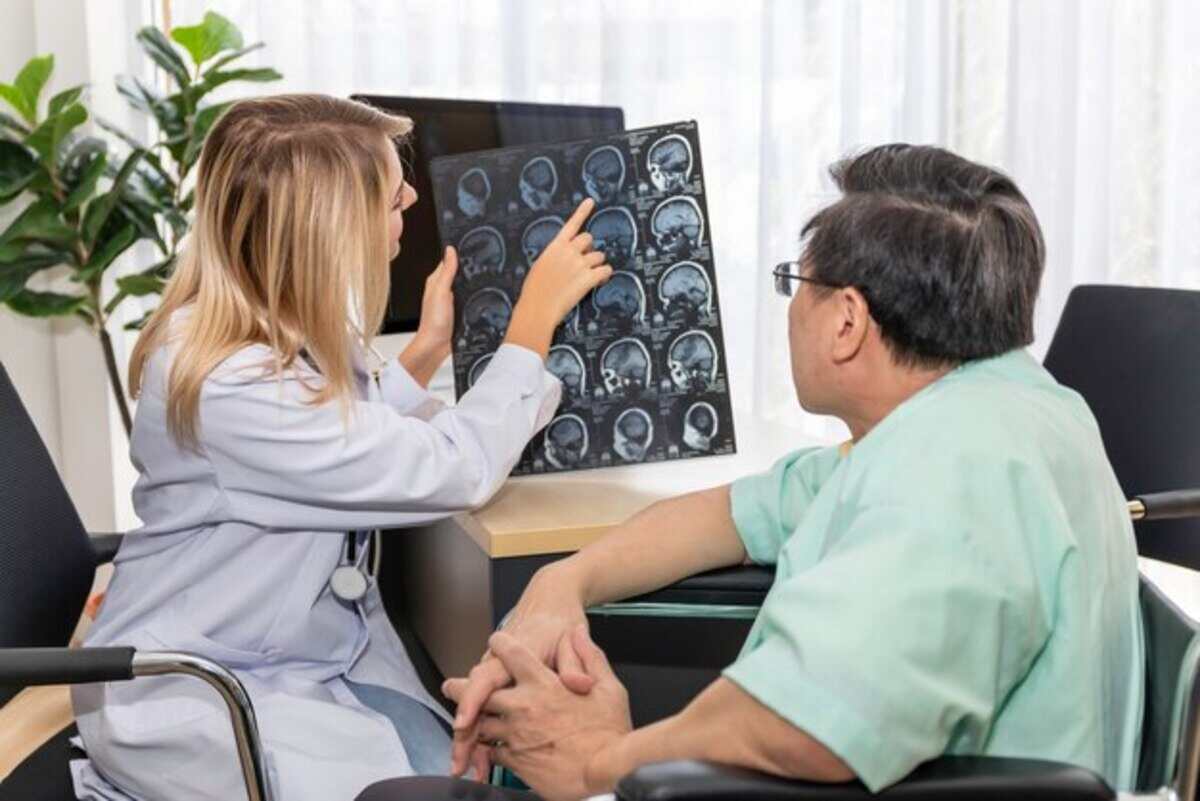How Neuropsychological Evaluation Helps In Stroke Recovery?
Neuropsychological evaluations are an essential part of stroke recovery, offering crucial insights into cognitive and emotional health and guiding tailored rehabilitation strategies. Neuropsychology also plays a vital role in understanding the broader effects of stroke on brain function.
What is a Neuropsychological Evaluation?
A neuropsychological evaluation involves a series of tests designed to measure cognitive abilities such as memory, attention, problem-solving, and emotional regulation. These tests are conducted by trained neuropsychologists who analyze the results to determine the areas most affected by the stroke.
How Does It Help in Stroke Recovery?
- Personalized Treatment Plans: By pinpointing the specific areas of cognitive impairment, neuropsychological evaluations help create customized rehabilitation plans that target the individual’s unique needs.
- Monitoring Progress: Regular assessments provide insights into the patient’s recovery progress, allowing adjustments to therapy for maximum effectiveness.
- Emotional Support: These evaluations also identify emotional challenges, such as depression or anxiety, which often accompany stroke recovery, enabling early intervention through counseling or therapy.
- Family Guidance: Families gain a better understanding of the patient’s condition, empowering them to provide the right support and care at home.

Understanding Stroke: A Guide to Symptoms, Types, and Importance of Immediate Care
A stroke is a serious neurological condition that happens when the brain’s blood supply is interrupted, leading to brain cell damage. This interruption can result in various physical and cognitive challenges, including difficulties with memory, thinking, or speech.
There are two primary types of strokes: ischemic stroke and hemorrhagic stroke.
Ischemic Stroke:
The most common type, accounting for around 87% of all strokes, ischemic strokes occur when a blood clot blocks a vessel in the brain, cutting off the blood supply. This blockage can cause brain cells to die, leading to symptoms such as:
- Weakness or numbness, particularly on one side of the body.
- Trouble speaking or understanding speech.
- Vision problems, like blurred or double vision.
Hemorrhagic Stroke:
Less common but often more severe, a hemorrhagic stroke happens when a blood vessel in the brain bursts or leaks, causing bleeding into brain tissue. Symptoms include:
- Sudden, intense headache.
- Nausea or vomiting.
- Seizures or loss of consciousness.
Some individuals might experience a transient ischemic attack (TIA), also called a “mini-stroke.” This occurs due to a temporary blockage of blood flow to the brain and serves as a warning sign of a potential future stroke.
Why Immediate Medical Attention Is Critical
Stroke symptoms vary depending on which part of the brain is affected, but any indication of a stroke requires immediate action. Quick medical intervention can significantly lower the risk of permanent disability and improve recovery outcomes.
In summary, recognizing the signs of a stroke and understanding its types can save lives. If you or someone near you show symptoms, don’t wait—act fast and seek emergency medical care.
Here’s how these assessments can significantly enhance stroke recovery:

Neuropsychological Evaluation in Stroke Recovery: Addressing Cognitive and Emotional Challenges
Identifying Specific Cognitive Challenges After a Stroke
Stroke survivors often face cognitive challenges that can significantly impact their everyday lives. These might include difficulties in remembering essential tasks, maintaining focus, or problem-solving. A neuropsychological evaluation is a key tool in identifying and addressing these challenges.
How Does a Neuropsychological Assessment Identify Cognitive Issues?
A neuropsychological assessment provides a thorough evaluation of various cognitive domains, such as:
- Memory: Examining the ability to recall events, learn new information, and retain details.
- Attention: Assessing focus, concentration, and the ability to manage distractions.
- Language: Identifying issues with comprehension, expression, or communication.
- Problem-Solving: Measuring reasoning skills and the ability to make decisions or solve everyday problems.
For stroke survivors, these assessments are particularly useful in pinpointing specific impairments and differentiating stroke-related issues from pre-existing cognitive conditions. This distinction is vital for developing personalized strategies that address the most affected areas.
Why This Matters in Recovery
By accurately identifying cognitive deficits, healthcare providers can design targeted interventions, such as cognitive therapy or lifestyle adjustments. These tailored approaches enable survivors to regain independence, improve functionality, and enhance overall quality of life.
Understanding the unique cognitive challenges faced after a stroke is a crucial step toward effective and meaningful recovery.
Guiding Tailored Rehabilitation Strategies After a Stroke
Recovery after a stroke is highly individual, and creating an effective rehabilitation plan requires a deep understanding of the survivor’s unique challenges. This is where neuropsychological assessments prove invaluable, offering insights that shape personalized therapy plans.
How Do Neuropsychological Assessments Shape Rehabilitation Plans?
One of the most significant advantages of a neuropsychological evaluation is its ability to pinpoint specific cognitive and functional deficits. These evaluations guide healthcare professionals in developing therapy strategies that are precise and effective.
Key Components of Tailored Rehabilitation:
- Memory Training: For individuals experiencing memory issues, therapy may include structured exercises to enhance recall and improve information retention.
- Focus Enhancement: If attention deficits are identified, rehabilitation plans can incorporate mindfulness practices, task segmentation, or concentration exercises to strengthen focus.
- Executive Function Support: When problems with planning, decision-making, or multitasking are noted, therapy may involve real-world problem-solving tasks and strategies to build organizational skills.
A Customized Roadmap to Recovery
The targeted insights provided by neuropsychological assessments ensure that rehabilitation plans address the areas most affected by the stroke. This personalized approach ensures therapy is effective, practical, and deeply aligned with the survivor’s needs, ultimately improving their daily functionality and quality of life.
By shaping therapy to fit individual challenges, neuropsychological assessments transform rehabilitation into a focused and empowering process.
Enhancing Emotional Well-Being in Stroke Recovery
A stroke doesn’t just affect the body and mind—it also significantly impacts emotional health. Feelings of depression, anxiety, and frustration are common among stroke survivors, often resulting from changes in brain chemistry and the challenges of adjusting to a new reality. Neuropsychological assessments play a critical role in identifying and addressing these emotional challenges.
How Can Neuropsychological Assessments Address Emotional Challenges?
These evaluations go beyond measuring cognitive abilities, delving into emotional and psychological health to detect shifts in mood or behavior. This insight helps mental health professionals develop personalized interventions to support emotional well-being.
Key Interventions May Include:
- Tailored Counseling: Stroke survivors often benefit from counseling sessions specifically designed to address stroke-related emotional challenges, such as grief, frustration, or feelings of loss.
- Resilience and Coping Strategies: Therapy may include techniques to build resilience, foster emotional balance, and improve stress management.
- Medication Management: If mood disorders like depression or anxiety are severe, medication may be prescribed to complement other therapeutic approaches.
A Holistic Approach to Recovery
By addressing emotional health alongside cognitive and physical recovery, neuropsychological assessments ensure a well-rounded and balanced rehabilitation process. This approach not only improves mental well-being but also enhances motivation and engagement in the overall recovery journey.
Focusing on emotional health is an essential step toward achieving long-term recovery success and improving the quality of life for stroke survivors.

Why Choose Neuropsychological Evaluations Over Other Methods?
When it comes to evaluating the impact of a stroke, neuropsychological assessments stand out as a superior choice. Unlike general cognitive screenings, which provide a broad overview, these assessments deliver a comprehensive and detailed analysis of brain function.
Key Advantages of Neuropsychological Evaluation:
- Detailed Cognitive Profile: These assessments delve deeply into various cognitive domains, identifying strengths and weaknesses across areas like memory, attention, problem-solving, and executive function.
- Actionable Insights: By understanding how specific cognitive challenges affect daily life, healthcare providers can craft interventions that directly address these issues, improving real-world functionality.
- Precision in Treatment Planning: The insights gained from a neuropsychological assessment allow for the development of targeted, personalized treatment plans, ensuring therapy is both effective and efficient.
The Difference in Stroke Recovery
General cognitive screenings may identify some cognitive impairments, but they often lack the depth needed for nuanced recovery strategies. Neuropsychological assessments, on the other hand, provide a tailored roadmap to recovery by focusing on the unique challenges faced by each individual.
Choosing neuropsychological assessments ensures that stroke survivors receive care that’s not only comprehensive but also optimized to maximize recovery potential and improve quality of life. This precision makes them an invaluable tool in the rehabilitation journey.
Tracking Progress Over Time: The Role of Regular Neuropsychological Assessments
Stroke recovery is a journey that unfolds over time, requiring consistent monitoring to ensure the best outcomes. Regular neuropsychological assessments play a critical role in this process by providing a structured way to track progress and refine rehabilitation strategies.
How Do Regular Neuropsychological Evaluation Support Recovery?
- Monitoring Cognitive and Emotional Improvements: These assessments evaluate changes in cognitive abilities, such as memory, attention, and problem-solving, as well as emotional health, like managing anxiety or depression.
- Identifying What Works: By analyzing results over time, healthcare providers can determine which interventions are most effective for the individual.
- Adjusting Strategies: If certain areas show slower improvement, these assessments guide therapists in making necessary adjustments, ensuring the recovery plan remains relevant and effective.
A Feedback Loop for Success
Regular assessments create a feedback loop, offering continuous insights that help shape the recovery process. This approach keeps therapy adaptive and personalized, aligning with the survivor’s evolving needs and goals.
By tracking progress through neuropsychological assessments, stroke survivors benefit from a recovery journey that’s not just reactive but proactively aligned with their unique challenges and achievements, ensuring steady and meaningful progress.
Take the Next Step in Your Recovery Journey
If you or a loved one are on the path to recovery after a stroke, consider the expert care and specialized neuropsychological assessments offered by Forensic and Clinical PsychExperts. Conveniently located in Jupiter, Florida, we provide comprehensive evaluations that delve deep into cognitive and emotional health, uncovering challenges and crafting personalized rehabilitation plans tailored to your unique needs.
With our dedicated team, stroke survivors can:
- Regain independence.
- Enhance their quality of life.
- Achieve meaningful recovery milestones.
Don’t wait to start your journey toward better health. Contact us today to schedule your neuropsychological assessment and take a proactive step toward recovery with confidence and support.
Conclusion
Neuropsychological evaluations are a cornerstone of effective stroke recovery, offering a detailed understanding of how a stroke has impacted cognitive and emotional health. By identifying specific challenges and shaping personalized rehabilitation strategies, these assessments empower survivors to regain independence and improve their quality of life. Regular evaluations ensure that recovery stays on track, adapting to the evolving needs of the individual. Coupled with emotional support and family guidance, neuropsychological assessments create a holistic approach to recovery that maximizes the chances of success. If you or a loved one are navigating life after a stroke, leveraging the precision and valuable insights of neuropsychological evaluations could be the most important step toward achieving meaningful recovery milestones.
FAQs
What makes neuropsychological evaluations different from regular cognitive tests?
They provide detailed insights into cognitive strengths and weaknesses, unlike general tests that only give surface-level information.
How often should neuropsychological evaluations be conducted for stroke survivors?
Every 3–6 months or as recommended by healthcare professionals to monitor progress and adapt rehabilitation plans.
Can these evaluations help address emotional issues like depression after a stroke?
Yes, they identify emotional challenges, enabling targeted counseling or therapy for improved emotional well-being.
Are neuropsychological assessments suitable for mild stroke survivors?
Yes, they benefit all survivors by identifying cognitive and emotional impacts, regardless of stroke severity.
How do neuropsychological assessments help families of stroke survivors?
They provide families with clarity on the survivor’s needs, improving support and care strategies at home.

